By the OER Project Team
While there is rarely a shortage of anticipation and excitement as the school year comes to a close, this year’s batch of summer reading recommendations has us waiting with particular enthusiasm for a bit of downtime. Whether you plan to pass your summer afternoons sunning yourself poolside, traveling somewhere exciting (travel! how exciting!), or simply hanging out in your own quiet living room, we hope you make time for yourself to indulge in something from this list of teacher-recommended titles.
Remember to save the date for the OER Project Book Club, which starts on July 6. We’ll be diving into Sam Wineburg's Why Learn History? (When It's Already on Your Phone) as a community. Hope to see you there!
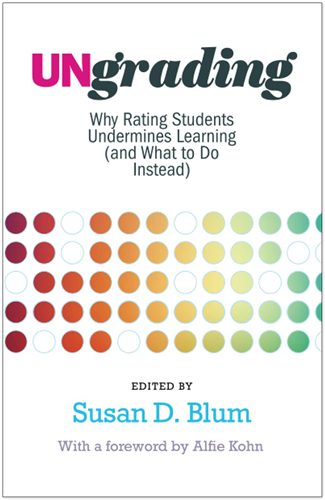 |
Ungrading, by Susan Blum (Ed). “Grading is my favorite part of my job!” said no teacher, ever. In Ungrading, 15 educators take a critical look at what has largely been accepted as a foundational part of education. From first-year teachers to seasoned veterans, this book steps inside the classrooms of a wide range of educators to share their varied experiences going gradeless. This book provides guidance for teachers who wish to leave behind the labeling, judging, and pressure that comes with handing out grades, and shows what makes going gradeless both challenging and transformative. |
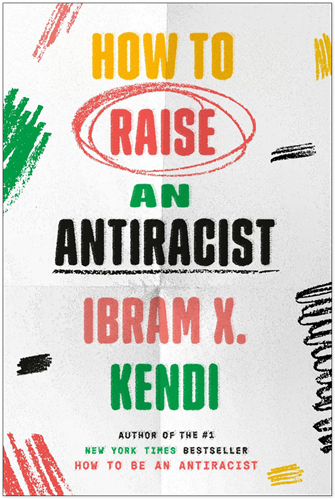 |
How to Raise an Antiracist, by Ibram X. Kendi. On the heels of his 2019 book, How to Be an Antiracist, Ibram X. Kendi details for parents, teachers, and caregivers how to support the next generation of antiracist thinkers. Combining scientific research with his own personal narrative, Kendi sets out to answer the questions: How do we talk to our children about racism? How do we teach children to be antiracist? How can we inspire our children to avoid our mistakes, to be better, to make the world better? |
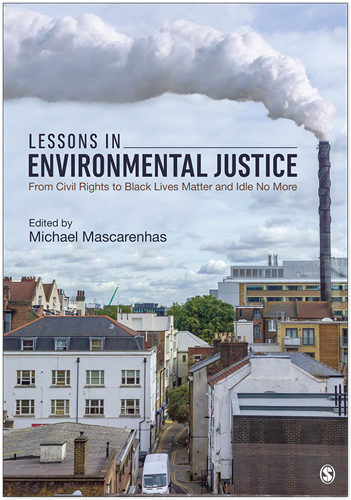 |
Lessons in Environmental Justice: From Civil Rights to Black Lives Matter and Idle No More, by Michael Mascarenhas. In this collection of essays from a diverse group of thinkers, Mascarenhas explores how marginalized and vulnerable populations—communities of color, undocumented workers, rural populations—are disproportionately impacted by environmental factors. This book is ready for classroom application, as each essay is followed by a suggested activity for students to engage with to continue to explore and understand the ideas raised. |
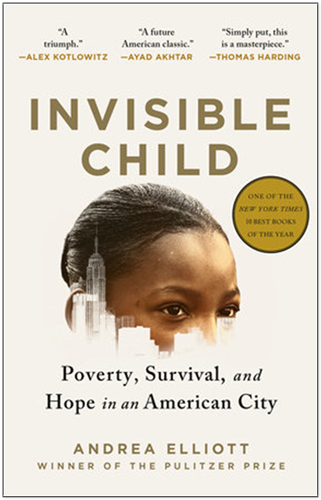 |
Invisible Child: Poverty, Survival and Hope in an American City, by Andrea Elliott. In Invisible Child, journalist Andrea Elliot leads readers through eight years in the life of Dasani, a child coming of age in the middle of New York City’s homeless crisis. Elliot follows Dasani and her family as they struggle with poverty, homelessness, and addiction. The narrative compassionately and gracefully casts much-needed light on these issues. |
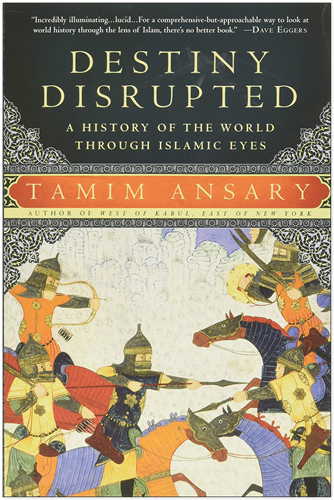 |
Destiny Disrupted: A History of the World Through Islamic Eyes, by Tamim Ansary. By placing the evolution of the Muslim community at the center of his narrative, Tamim Ansary brings a fresh perspective to world history. From ancient empires to modern conflicts, Ansary explores key events, how they’re understood from a Muslim perspective, and what happened when the Islamic and Western narratives intersected. Destiny Disrupted will show you firsthand the way different “frames” will alter your understanding of history. |
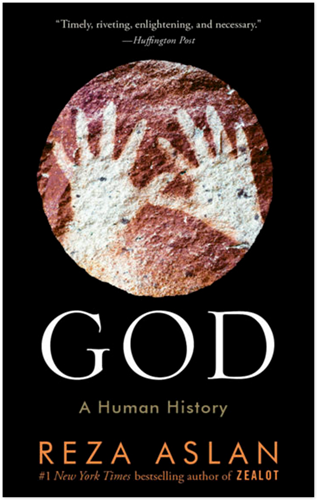 |
God: A Human History, by Reza Aslan. Aslan follows the evolution of religion by chronicling the humanization of the divine: what the author describes as the innate desire to understand God by ascribing human traits and emotions. Our perspective of the birth and development of religion, the author argues, is inextricably linked to the universal desire to see ourselves in God. Regardless of your beliefs, God: A Human History will challenge you to take a closer look at the role of the divine in our everyday lives. |
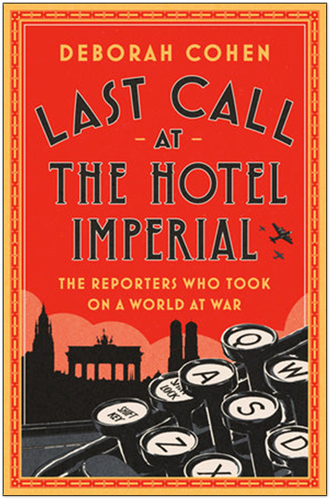 |
Last Call at the Hotel Imperial: The Reporters Who Took On a World at War, by Deborah Cohen. Last Call at the Hotel Imperial is the unsung story of four influential American journalists writing from Europe in the lead-up to World War II. Covering the likes of Hitler, Mussolini, Gandhi, and Churchill, the reporters recast what journalism looked like, and through their stories Cohen attempts to pull meaning from the mess of global prewar events that led to the rise of authoritarian regimes. |
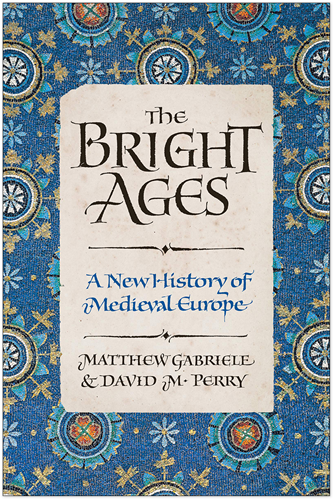 |
The Bright Ages, by Matthew Gabriele and David M. Perry. Seeking to recast the “Dark Ages” narrative so often ascribed to medieval Europe, Gabriele and Perry look to illuminate this time as a remarkable period in human history. The Bright Ages works to overcome the myth of “savage, primitive, and isolated Europe” by exploring familiar people and events in a new light, and in doing so, encourages you to challenge assumptions and prejudices about the past to create a more complete picture of our shared history. |
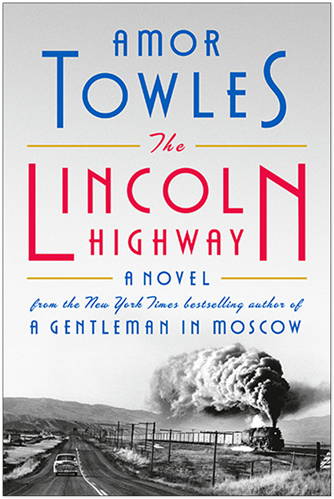 |
The Lincoln Highway, by Amor Towles. What’s more classically summer than a road trip? The Lincoln Highway follows three 18-year-old boys on a road trip across 1950s America in a powder blue Studebaker. Towles’s characters bring to the surface the interplay between the burden of responsibility and the call of the wild spirit. Summer, more than any other time, is the opportunity to answer that call. |
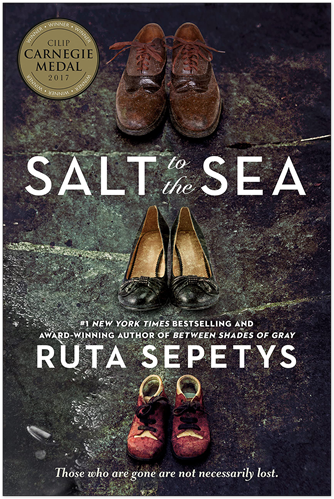 |
Salt to the Sea, by Ruta Sepetys. In the same vein as The Lincoln Highway, Ruta Sepetys’s YA historical novel follows three teenage protagonists on the road to new opportunity while they work through personal struggle and external chaos. Salt to the Sea is set in the final days of World War II, and tied into the stories of the three young refugees is the real-life tragedy of the Wilhelm Gustloff, the ship sunk in January 1945 with an estimated 10,500 people on board. Sepetys gives voice to groups often ignored in the retelling of history, and in doing so creates a story appealing to student and adult readers alike. |
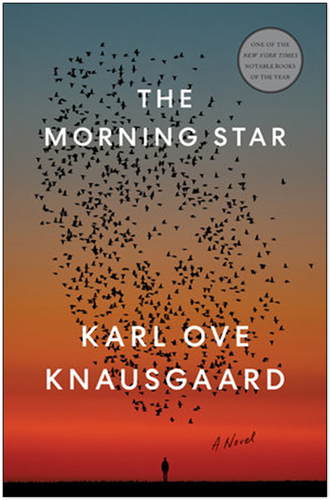 |
The Morning Star, by Karl Ove Knausgaard. The Morning Star will likely render useless your expectations of what a novel should “do.” Knausgaard is a well-known figure in the world of autofiction, a genre that challenges the confines of the traditional realist novel. The Morning Star follows nine distinct first-person accounts of characters who have seen a huge, blazing star in the sky. Alternating between the mundane and the extraordinary, Knausgaard’s novel can both disorient and set free, perhaps at just the time we need such a shake-up. |
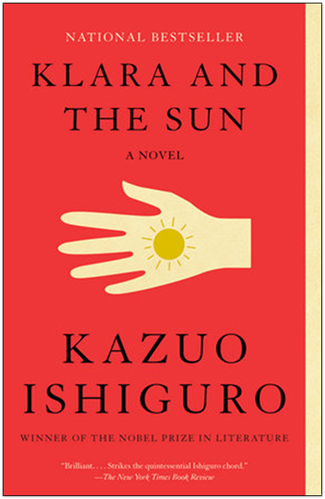 |
Klara and the Sun, by Kazuo Ishiguro. If you haven’t already read about Kazuo Ishiguro’s acclaimed dystopian, science-fiction novel, we are pleased to be the ones to introduce it. Klara and the Sun is narrated by Klara, an Artificial Friend—an android that acts as a companion to a 14-year-old girl. Through Klara, Ishiguro brings to the surface the wonders and fragilities of being human by exploring the question, What does it mean to love? |
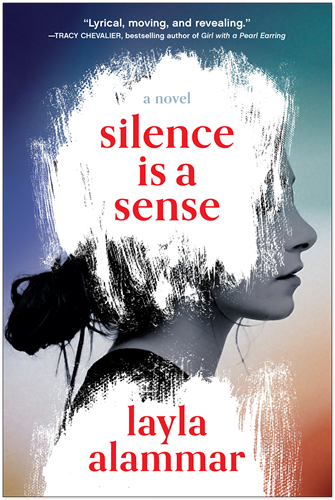 |
Silence Is a Sense, by Layla Alammar. Silence Is a Sense is narrated by a Syrian refugee living in the United Kingdom. Under the pseudonym “The Voiceless,” Alammar’s protagonist writes columns for a British newspaper about the lives of refugees. The narrator has herself been so traumatized by her experiences that she no longer talks, and through the experiences of the protagonist and her neighbors, Alammar explores the nature and impacts of trauma in its many forms. |
Cover image: Book covers courtesy and the publishers. Underwater by Sime Basioli on Unsplash, CC0.
 For full access to all OER Project resources AND our amazing teacher community,
For full access to all OER Project resources AND our amazing teacher community, 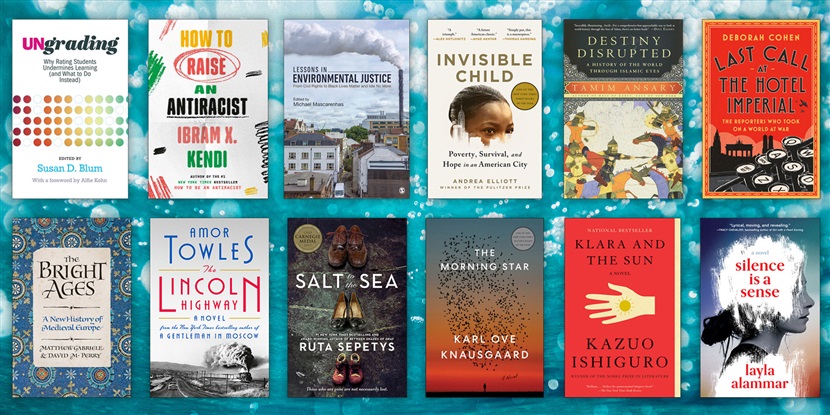
Top Comments